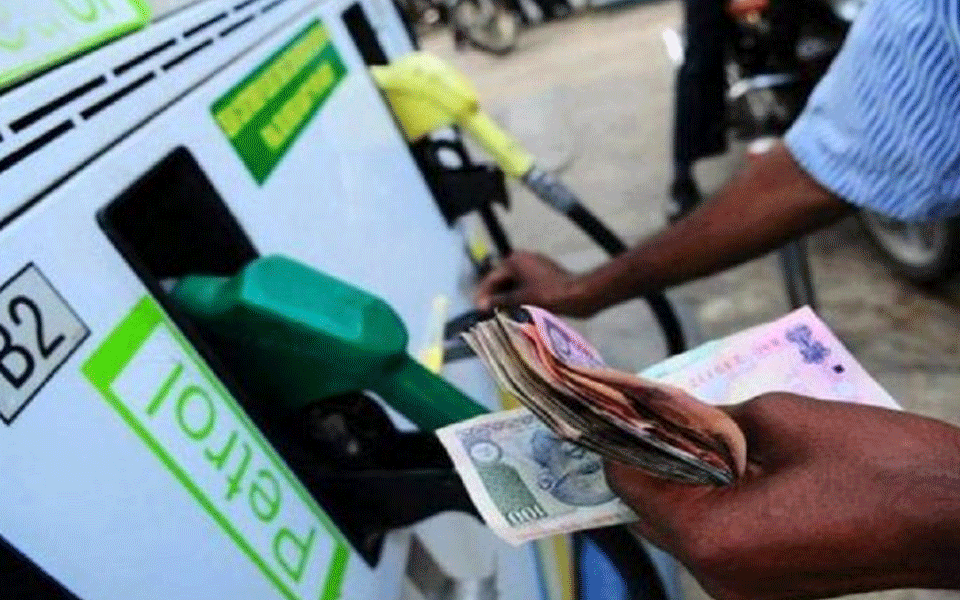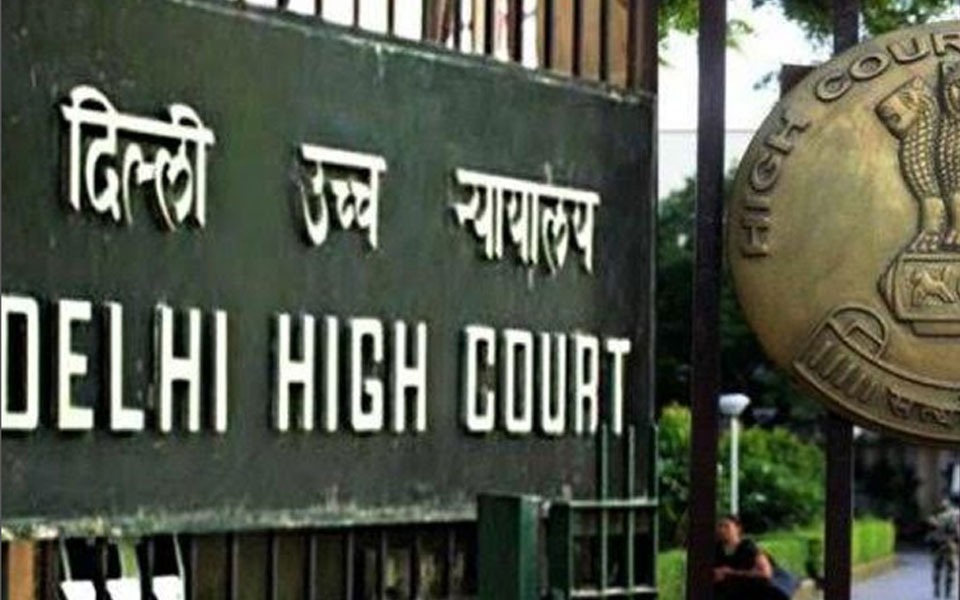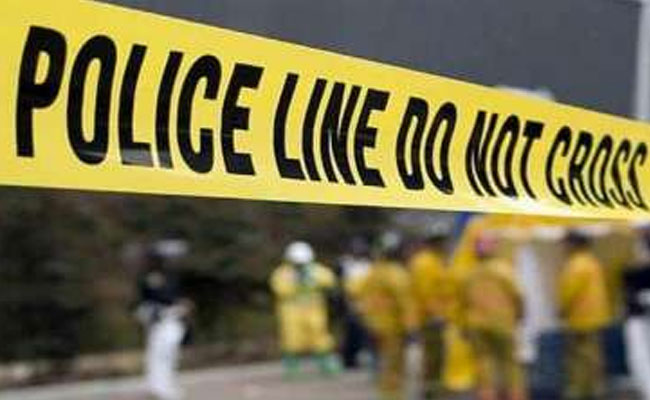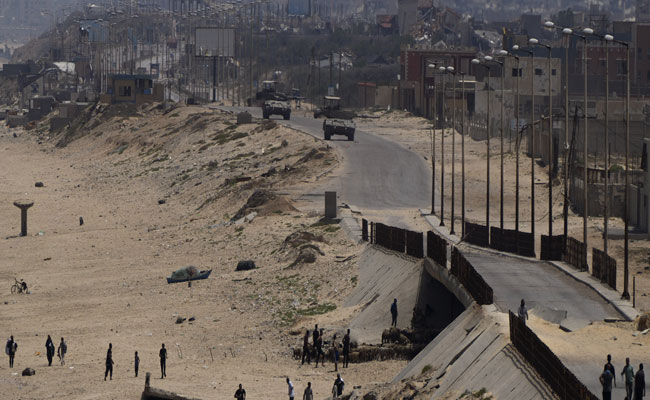New Delhi: Petrol price was on Sunday cut by 12 paise a litre and diesel rates by 14 paise as oil companies moderated rate reduction amid the fall in global prices to absorb the hike in excise duty on fuel by the government.
Petrol in Delhi now costs Rs 69.75 per litre, while diesel is priced at Rs 62.44, according to a price notification of state-owned oil firms. Delhi has the lowest fuel prices among metros because of lower state taxes.
Industry sources said the reduction in rates would have been higher but for the Rs 3 per litre increase in excise duty effected on Saturday.
Oil companies, they said, had been moderating reduction warranted in retail prices in anticipation of an excise duty hike.
The gains they thus accumulated were adjusted against the price hike that would have been necessary because of the increase in excise duty. Some moderation in passing on the decline in international prices in the near future to domestic consumers will continue till all of the excise duty impact is recovered, the sources added.
The government had on Saturday hiked excise duty on petrol and diesel by a steep Rs 3 per litre each to garner about Rs 39,000 crore additional revenue as it repeated its 2014-15 act of not passing on gains arising from the slump in international oil prices.
According to a notification issued by the Central Board of Indirect Taxes & Customs, special excise duty on petrol was hiked by Rs 2 to Rs 8 per litre and to Rs 4 a litre from Rs 2 in case of diesel.
Additionally, road cess was raised by Re 1 per litre each on petrol and diesel to Rs 10.
With this, the total incidence of excise duty on petrol has risen to Rs 22.98 per litre and that on diesel to Rs 18.83.
The tax on petrol was Rs 9.48 per litre when the Modi government took office in 2014 and that on diesel was Rs 3.56 a litre.
The government had between November 2014 and January 2016 raised excise duty on petrol and diesel on nine occasions to take away gains arising from plummeting global oil prices.
In all, duty on petrol rate was hiked by Rs 11.77 per litre and that on diesel by 13.47 a litre in those 15 months that helped government's excise mop up more than double to Rs 2,42,000 crore in 2016-17 from Rs 99,000 crore in 2014-15.
It cut excise duty by Rs 2 in October 2017 and by Rs 1.50 a year later. But it raised excise duty by Rs 2 per litre in July 2019.
Let the Truth be known. If you read VB and like VB, please be a VB Supporter and Help us deliver the Truth to one and all.
New Delhi (PTI): The Delhi High Court has directed the city authorities to pay Rs 30 lakh compensation each to the families of three sanitation workers who died during manual scavenging in 2017.
The HC allowed the petition by the family members seeking higher ex gratia in accordance with a Supreme Court order in 2023 which increased the compensation payable to the dependents of the victims who lost their lives in manual scavenging to Rs 30 lakh from the existing Rs 10 lakh.
The family members said in the petition that the three sanitation workers died in August 2017 while cleaning a drain in Lajpat Nagar. The plea said the deceased were engaged by a Delhi Jal Board sub-contractor.
The petitioners said that after they died, a compensation of Rs 10 lakh was awarded to the family members. However, they prayed that the amount be increased to Rs 30 lakh.
"It can be seen that the directions issued by the Supreme Court were expressly made applicable to all the statutory bodies including corporations, railways, cantonments as well as the agencies under its control.
"Moreover, the Union and State governments were directed to ensure that the rehabilitation measures were taken with respect to sewage workers, including the family of those who have lost their lives. Specifically, it was directed that the compensation of Rs 10 lakh that was given to the family members of the deceased workers be enhanced to Rs 30 lakh," Justice Sachin Datta said.
The high court said necessarily, the ameliorative directions, strictures and the embargo imposed by the Supreme Court are applicable to the Delhi Jal Board (DJB) as also to any agency that may be engaged by the board within any part of Delhi in connection with the work relating to the collection of sewage or carrying out connected works.
"Any disregard or violation thereto would invite strict consequences" as envisaged in the apex court verdict, it said.
Considering the reasoning given by the apex court, it would be a travesty if the entitlement of the family members of the deceased scavenging workers is confined to Rs 10 lakh, the high court said.
"The same would defeat the directions of the Supreme Court to enhance the compensation to Rs 30 lakh on the basis that the previously fixed compensation of Rs 10 lakh was fixed as far back as in the year 1993 and could not be considered to be an adequate compensation," it said, adding that the family members of the deceased sanitation workers are entitled to a compensation of Rs 30 lakh.
The high court said the remaining amount be paid to the family members within eight weeks.
Observing that manual scavengers have lived in bondage, systematically trapped in inhuman conditions for a long time, the Supreme Court had in October last year asked the Centre and state governments to completely eradicate manual scavenging across the country.
Passing a slew of directions for the benefit of people involved in manual scavenging, it had asked the central and state governments to pay Rs 30 lakh as compensation to the next of kin of those who die while cleaning sewers.
"The court hereby directs the Union and the States to ensure that the compensation for sewer deaths is increased (given that the previous amount fixed, that is, Rs 10 lakh) was made applicable from 1993. The current equivalent of that amount is Rs 30 lakh. This shall be the amount to be paid, by the concerned agency, that is, the Union, the Union Territory or the State as the case may be. In other words, compensation for sewer deaths shall be Rs 30 lakh," the Supreme Court had ordered.
It had also said that the authorities needed to take measures for the rehabilitation of the victims and their families.





